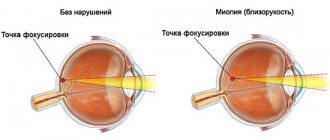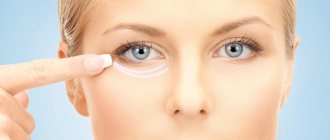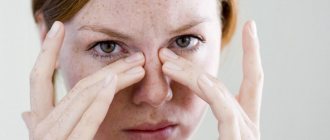Insomnia is a serious disease characterized by various sleep disorders.
A person cannot fall asleep for a long time, while experiencing severe drowsiness and fatigue.
And if he does fall asleep, he can wake up several times during the night.
At the same time, sleep is disturbing, intermittent and shallow. It does not give rest, and in the morning a person feels completely defeated.
Insomnia is a pathological disease that occurs for various reasons. A whole range of medications is needed to normalize sleep.
Causes of insomnia in women and girls
The sleep of the female body has its own distinctive characteristics from the sleep of men.
Women need more hours of sleep to feel alert. For this reason, they often go to bed earlier than men and wake up several hours later. This is explained by the fact that women's sleep is more superficial and interrupted more often. In medical terminology, insomnia is called insomnia. In search of the reasons why women experience insomnia at night, an analysis of the physiological and mental sources of the development of this disorder is necessary.
Physiological
Insomnia is only a symptom of many diseases: arthritis, pathologies of the cardiovascular system, asthma, kidney disease, hyperthyroidism and others.
A common cause also includes taking certain medications that can cause insomnia.
Overeating before bed, as well as poor nutrition, also contributes to this condition. The cause of insomnia in women after 50-55 years of age may be menopause.
Let's analyze the most common reasons:
- Pregnancy - sleep disturbances are especially popular in the first and last trimester. This is explained by hormonal and physiological transformations of the pregnant woman’s body. After childbirth, most women experience chronic lack of sleep and postpartum depression.
- Depressive disorder is one of the most common diseases in modern times, based not only on mental problems, but also has a physiological basis. Insomnia is one of the main symptoms of depression.
- Changing time zones, working night shifts.
- Negative lifestyle - smoking and excessive alcohol consumption has a negative impact on the nervous system.
- Diseases of the endocrine system, hormonal imbalances, premenstrual syndrome.
- Long-term poor diet.
- Abuse of drinks and foods with high caffeine content: chocolate, tea, coffee.
- Gastrointestinal tract disorders.
- Muscle tension.
- Side effects of drugs.
- Toothache, headache and other types of pain.
- A variety of other diseases in which the symptom of insomnia is combined with back and muscle pain, heartburn, constipation, rashes and itching, apnea (sleep apnea), memory impairment, etc.
- Physically uncomfortable and uncomfortable conditions, uncomfortable mattress and pillow, elevated room temperature, extraneous sounds when falling asleep.
- A new unusual place to sleep.
- Using gadgets (smartphone, tablet, laptop) an hour or two before bedtime.
- Lack of physical activity during the day, poor physical fitness - lack of sports in life.
Among the reasons, the individual characteristics of the female body are also highlighted: the current state of health, lifestyle, peculiarities of temperament and age characteristics.
Shortly before and during menopause, a woman’s melatonin content in the body decreases. This is a hormone that is produced in the dark and controls the biological clock. Its deficiency leads to increased fatigue, irritability, and problems falling asleep and staying asleep. After 40-45 years, women's melatonin secretion decreases by 1.5-2 times.
Psychological
Constant worries, increased anxiety, apathy, mental disorders, psychological problems in your personal life - in the family or at work, prevent the body and mind from relaxing to the right extent, which leads to exhaustion and sleep disturbances. To cure insomnia, you first need to deal with the stress in a woman’s life.
Most of the fair sex are subject to a violent outburst of emotions, especially during PMS, this applies to women of any age - both 30 and 50 years old. Acute, bright positive emotions, just like negative ones, can disrupt sleep. Therefore, it is important to be able to manage your emotions, control your temper and impressionability.
Main psychological reasons:
- Information data overload.
- Acute emotional experiences, an influx of anxious thoughts.
- Drastic changes in life.
- Chronic mental pathologies.
- Feelings of guilt, worry about unresolved problems, worry about the health of loved ones.
- Lack of pleasure, lack of rest or favorite activity.
- When falling asleep, thoughts constantly return to problematic situations from the past - unexpressed feelings and experiences, unresolved conflict situations, which are best dealt with in the office of a psychologist or psychotherapist.
- Lack of confidence in yourself and your actions.
- Hard mental work throughout the day.
- Psychological character traits - for example, a constant desire to keep everything under control, negative thinking.
- Nightmarish dreams, which can also reflect problems in life and psyche.
Healthy sleep is a state that is important and necessary for restoring mental and physical strength. Often people don't even realize the importance of this. Problematic rest does not allow the brain and body to relax, resulting in the feeling of weakness, irritability and weakness the next morning.
Bad sleep - what to do
The cause of this problem may be stress, as well as a deficiency of B vitamins and magnesium. We have already discussed above how to deal with stress and what magnesium to take. It is better to take natural vitamins. Also try vitamin B3 separately in the form of niacin. Feelings of warmth, tingling and redness of the skin are normal reactions to this form of the vitamin. Just take it not in the morning, before going to work, but in the evening. The rest of the vitamins are best taken in the morning after breakfast. At this time, they are better absorbed and provide energy to the body. But when I had problems sleeping, I took B-complex at night. It helped.
Symptoms and signs
Insomnia is difficult to miss - it manifests itself either in the inability to fall asleep, or in frequent awakenings, or in restless shallow sleep, or in a feeling of fatigue and weakness upon awakening.
During the daytime, insomnia manifests itself in mental and physical lethargy, inhibited thinking, irritability, decreased concentration, and sudden mood swings. Often there are complaints of severe headaches and problems with the gastrointestinal tract.
Diagnosis of insomnia by a doctor includes analysis of the duration of the symptoms described above, determination of existing somatic and mental diseases, lifestyle analysis, sometimes MRI of the head, passing special tests and questionnaires, neurological examination and recording of brain activity during sleep using special devices.
Causes
You can effectively deal with a problem if you find its causes. It is often not so easy to determine what is interfering with normal sleep. The causes of the disease can be different situations:
USEFUL INFORMATION: Why do my heels hurt in the morning after sleeping?
Sleep hygiene problems
If you often suffer from insomnia, its causes may be: an uncomfortable pillow, a hard mattress, insufficient fresh air in the bedroom, or too low or, conversely, high room temperature. Problems with sleep can also be caused by the sun's rays, which in the morning begin to break through an uncurtained window. And if there is a nightclub in the next house, then you can be sure that insomnia and neurosis are guaranteed.
Stress
A common cause of insomnia is a stressful situation in life. There are people who often exaggerate the problem that has arisen. Thinking about it before going to bed, they cannot fully rest. The result is insomnia. This psychosomatic disorder occurs more often in women.
Why is insomnia of this nature dangerous? Firstly, it threatens absolutely all people. After all, stressful situations happen to every person in life. The result is a breakdown in the functioning of the nervous system, as a result of which in the evening it does not prepare for bed, but becomes excited.
Features of insomnia from stress (psychosomatic type) are:
- there is a fear of falling asleep;
- dreams are quite disturbing, there may be nightmares from which you have to wake up often;
- dizziness appears, fainting is common;
- heartbeat becomes frequent;
- if there is no trembling of the limbs, then internal trembling appears;
- stress insomnia causes headaches
Nervous system problems
Lack of sleep can be caused by diseases of the nervous system.
In this case, inhibition processes occur in the sleep centers of the brain. Accordingly, the body is unable to fall asleep. This is how insomnia occurs with depression, neuroinfection, concussion, even with neurosis. Insomnia due to nervousness has the following features:
- light sleep;
- difficulty falling asleep;
- there is a complete lack of sleep;
- waking up at night and not being able to sleep afterwards.
All these signs are combined with the symptoms of each specific disease that affects the nervous system.
USEFUL INFORMATION: Weakness in the body and drowsiness: causes in adults
Human nutritional disorders
Another reason why insomnia occurs is poor nutrition. If a person eats a very hearty meal before going to bed, the food will remain in the stomach until the morning. The result is discomfort at night, which is accompanied by heaviness in the abdomen.
Somatic diseases
Not only nerve diseases can cause chronic insomnia and its causes. There are other health problems that interfere with adequate sleep. Among them are angina pectoris, stomach ulcers, arthrosis, hypertension, and dermatitis. Even a slight illness can cause nighttime insomnia. True, this phenomenon is not constant. But chronic diseases are serious causes of long-term sleep disturbances. What to do in this case? Of course, follow the therapy prescribed by the doctor.
Special behavior
There is a specific type of behavior that causes insomnia. This is a negative attitude that is not associated with sleep at all, but with the bed or room in which the person is located. The reasons for this behavior may be different:
- fear of having a heart attack;
- fear of nightmares;
- unpleasant memories after divorce;
- other.
This suggests that depression and insomnia are always nearby.
Enuresis
Urinary incontinence, which most often occurs at night, affects more than 20% of preschool children and even 1% of all adults on the planet. Allergies, diabetes, infection, and stress that cause this condition are quite dangerous and serious diseases. They require treatment, during which sleep at night can be improved.
Snore
Snoring is a disease characterized by disturbances in the respiratory process. If a person snores, it means he does not have enough oxygen. As a result, you need to wake up to start breathing normally. It happens that people get up 30 times during the entire short night.
Taking stimulants
Insomnia at night may occur as a result of taking stimulants. These include not only medications (antidepressants, asthma medications, pills for the treatment of heart disease). This includes coffee, tea, alcoholic drinks, amphetamines, cola, even dark chocolate. All of them significantly reduce the duration of deep sleep.
USEFUL INFORMATION: Causes of snoring during sleep
Age
Old age is a period when a person is no longer able to maintain his former physical activity. Accordingly, the body does not need much time to recover. As a result, night sleep is reduced.
Heredity
For some people, a disease such as insomnia is inherited. This problem occurs due to insufficient production of the sleep hormone.
The attending physician must definitely understand what is causing the insomnia. After all, causes and treatment are interconnected.
How to treat insomnia?
Insomnia can be treated using traditional methods or by going to the clinic. When treating yourself, it is important not to harm your health even more and not to use strong psychotropic and hypnotic drugs on your own.
You should consult a doctor if you notice:
- inability to fall asleep after 30 minutes to an hour of being in bed without light sources around;
- frequent awakening without further opportunity to fall back to sleep;
- feel tired after waking up;
- symptoms last longer than a week or two.
There are three methods of treating insomnia that are combined with each other. Replacement therapy involves taking hormones in the form of tablets, which are taken before falling asleep and help normalize sleep. Psychotherapy and sleeping pills, which are prescribed by the doctor after a complete examination of the patient.
Are medications needed?
Medications should only be prescribed by a doctor and in severe cases of insomnia. They have a number of side effects that should be monitored by specialists. Many of the medications carry the risk of dependence and addiction.
Natural herbal medicines that have a mild sedative effect have a milder effect - these are valerian, motherwort tincture, Menovazin, Persen or Novo-passit. They can be used independently, but also with extreme caution and analysis of the instructions with contraindications.
Zolpidem and Zaleplon have virtually no side effects and help you fall asleep quickly.
Under no circumstances should this condition be treated by drinking alcohol.
Folk remedies
Folk remedies that can help normalize not too advanced cases of insomnia:
- dried bay leaves are added to the pillow on which a person suffering from insomnia sleeps;
- eating a small amount of onion half an hour before bedtime;
- drinking tincture of dill seeds or hop cones;
- 250 ml of warmed milk with honey before resting.
Gymnastics and massage for insomnia for women
One of the safest and most enjoyable ways to treat sleep disorders is massage. It is quite effective for insomnia that is not too severe, especially with aromatic oils.
Lavender oil is applied to the temples and lightly massaged into this area before bed. You can knead your feet with light circular movements for 20 minutes before falling asleep and when waking up.
Acupressure can be performed by anyone who does not have vascular pathologies, rashes or other skin damage, tumors or thrombophlebitis. This method involves massaging sleepy points on the body.
The duration of the method on one zone is up to three minutes. There should be no pain during the procedure.
The point located between the eyebrows, about 1 cm above the bridge of the nose, is warmed up. You need to press on it for a minute or two. The second point is located on the outside of the wrist near the little finger at the end of the wrist fold. It can be found by the depression between the tendons.
Chinese gymnastics is good for insomnia 10 minutes before falling asleep. Leaning on your back, you need to extend your arms and place them in different directions. Legs bend at the knees. You need to cross your knees and then place your left knee on top of your right. Take 10 smooth breaths on one side and the other.
Treatment
Medicines are used only as prescribed by a doctor. Often this is a complex of medications, which include:
- herbal sedatives;
- tranquilizers;
- antidepressants;
- neuroleptics;
- vitamin complexes;
- hormonal drugs;
- diuretics.
Insomnia is not a death sentence.
This disease can be effectively treated if you consult a doctor promptly. You should not fight the disease on your own. It can be caused by serious illnesses. Only a specialist can determine the cause and prescribe a set of necessary medications.
Prevention of insomnia
In order not to ask questions about why insomnia occurs, it is better to warn it in advance. To reduce the likelihood of developing insomnia, it is necessary to adhere to a proper daily routine, proper nutrition, exercise, walk before bedtime and during the day in the fresh air, do not smoke, and do not drink a lot of alcohol and caffeinated drinks.
You should also not use gadgets or the Internet an hour before bedtime. You should try to go to bed and wake up at the same time, and take hot, relaxing baths.
Insomnia in old age
Lack of sleep in old age is due to age-related characteristics of the body; the production of the growth hormone melatonin decreases. A decrease in the volume of the substance leads to frequent awakenings at night. Also, the main causes of dyssomnia in retirement age are:
- Lack of sunlight (less than 2 hours), which helps maintain melatonin levels in older people.
- Lack of physical and social activity.
- Stress and anxiety.
- Diseases that prevent a person from resting at night.
- Taking medications, smoking, drinking alcohol.
- Disturbances can occur due to daytime sleep and constantly turned on TV.
The chronic form has a significant impact on health and can cause decreased immunity and other diseases. It is much more difficult for an elderly person to endure the consequences of insomnia; a visit to a specialist is required if there is no normal sleep for more than 10 days.
Why is insomnia dangerous?
Timely treatment of acute insomnia normalizes the patient's condition. For chronic disorders, it is necessary to carry out long-term treatment under the supervision of a doctor. If you do not take any measures to treat the pathology, the consequences of insomnia will be reduced to the development of mental disorders. Over time, they will begin to increase and manifest themselves as panic attacks, increased excitability, irritability and aggression. In addition, sleep disturbance can lead to metabolic failure, since many metabolic processes occur at night.
Sexual failures
Men are very sensitive to the fact that they could not give pleasure to their partner.
Often a fiasco in bed leaves them worried for several days, preventing them from sleeping at night. Twelve underrated sleep thieves. The authors of the Austrian study suggest that many cases of menopause are associated with hormonal changes, especially a drop in estrogen levels. A drop in estrogen levels can make sleep less deep and restful.
https://www.youtube.com/watch?v=
However, during menopause, other hormones also become out of balance, and the brain responds by releasing fewer messengers such as acetylcholine and norepinephrine. Since these two messengers control the stages of sleep, the rhythm of sleep becomes confused. He comes only after years in Lot.
How to get rid of snoring?
- Go to an otolaryngologist, in case you have nasopharyngeal diseases and need to be treated.
- If you sleep on your back, sew a tennis ball to the back of your pajama pants. This will help you learn to sleep on your side, and perhaps your snoring will go away.
- Lose weight.
- Do not smoke.
- Avoid alcohol before bed.
- Get rid of high pillows, raise the head of the bed by 10 cm or sleep on a flat pillow.
- Learn to fall asleep without sleeping pills.
- Train your laryngeal muscles.
Exercises to eliminate snoring
What methods help with severe forms of snoring?
- Surgery.
- The use of special mouthguards that prevent the tongue from sinking.
- Injections into the palate or root of the tongue.
- Installation of a stimulator in the nasal cavity.
Traditional methods
You can resort to traditional medicine methods that will allow you to improve the process of falling asleep. If these methods turn out to be ineffective in your case, it is better to seek help from a specialist.
- Honey. You can use honey water. Dissolve honey in warm water (a tablespoon per glass). You need to drink it at night. You can prepare a mixture of lemon and honey. In this case, you will need to chop the unpeeled lemon and add honey (two tablespoons) to it. Stir everything well and take a tablespoon at night.
- Essential oils. You can spray it at the head of the bed. To do this you will need to spray literally two drops. To counteract insomnia, peppermint, cedar, lavender, citrus, valerian, jasmine, and lemon balm oils can be used. Massage using essential oils also has a beneficial effect. If you do not have the opportunity to go to a massage therapist, then you can ask one of your relatives to massage your neck and shoulders using essential oil. You can wipe your hands and feet with oil and massage your temples yourself. It is worth knowing that if you are doing a massage, then, in addition to the aromatic oil itself, you need to use vegetable oil, for example, olive oil. The duration of the massage is ten minutes.
- Herbal remedies can also be used to get rid of insomnia. Melissa, motherwort, valerian, calendula, thyme, sleep herb or peony tincture may be suitable for you. However, it is better to consult with a specialist who can advise the necessary dosages for your specific case. It is worth considering that herbs can have a beneficial effect in the fight against insomnia, but they may be contraindicated in the presence of some diseases.
Now you know what to do if you begin to suffer from insomnia. You need to understand that healthy sleep determines both your mood and overall well-being. Lack of sleep makes a person nervous and deprives him of the fullness of life. If such problems appear, do not put them aside, start treatment immediately.
Additional materials
How much sleep do you need and when to go to bed? In our article we will tell you how to go to bed correctly and how much time you need to spend sleeping.
Carpal tunnel syndrome What is it, main signs, ways to prevent the disease.
Author: Sergey Antropov (KadrofID: 5) Added: 03/21/2014 at 16:48
To favorites
Comments (15)
Tuchka (KadrofID: 3397)
I tried to think about good things, and put on socks (by the way, they irritated me), and took a walk, and ate, but there was no one to give me a massage))), but my insomnia probably lasted for a week. That’s when I took Valocordin-doxylamine at night on my mother’s advice, only then did I fall asleep normally and sleep peacefully. That's why. be that as it may, if the usual methods do not help, it is better to take a sleeping pill
09/11/2015 at 18:39
Alexandra (KadrofID: 10644)
Nothing helped me, what should I do?
03/10/2016 at 01:24
Elena (KadrofID: 14122)
A very warm foot bath for 15-20 minutes helps me with insomnia. The truth is that during periods of particularly stressful working days, even this does not help. Then I take 15 drops of Valoserdin, dilute it with water and sleep like a groundhog.
06/23/2016 at 15:00
Alice (KadrofID: 15098)
I am 14-15 years old and have been suffering from insomnia for a long time. I tried everything, it doesn’t help, but I can’t take sleeping pills, things get worse later. What to do?
07/19/2016 at 01:36
Nazila (KadrofID: 18624)
Sometimes I get so tired at work, then at home with the children, with cooking... That I don’t have any strength left for a restful sleep. Sometimes I try to calm down and fall asleep, but I can’t. I'm being saved by Valoserdin. At least I started falling asleep like all normal people.
03.10.2016 at 17:19
Elizabeth (KadrofID: 19379)
It helped a lot, thank you very much!!!
10/17/2016 at 00:00
Anton (KadrofID: 20535)
There was constant stress at work, I became irritable and simply unbearable, I never took medications, but then I had to, I started taking Valoserdin. It acts as a sedative and helps me.
07.11.2016 at 20:42
Irina (KadrofID: 21537)
The methods are excellent, I also resorted to them, but still, if that same excitement sits inside you, then candles or a glass of milk are unlikely to help. It’s better to drink something that helps calm your thoughts before going to bed, for example valoserdin, which has both a calming effect and a sleeping pill, get a good night’s sleep and stop suffering from insomnia. The main thing in this matter is a systematic approach. Please send me the site where you want to post a review
11/25/2016 at 09:27
Mila (KadrofID: 39128)
On the contrary, if I eat before bed, I definitely won’t sleep until the morning! For now I’m saving myself with glycine from Evalar, I’ll try to read more before bed) I think sleep will be better
05.11.2017 at 10:08
Nina (KadrofID: 39856)
So many comments and everyone drinks Valoserdin... well, how... funny. To fall asleep faster, I usually ventilate the room well, drink chamomile tea 30 minutes before bed, you can change the pillowcase - it’s better to sleep on a fresh and crisp one :))) If sleep problems are caused by some problems, neuroses, you can drink a sedative ( not sleeping pills! screw them). Valerian, or stronger - relaxen from Baikal skullcap and hops. About an hour before bedtime. Oh yes. And also forget about viewing social networks before bed.
20.11.2017 at 23:14
Anya (KadrofID: 40316)
Hello, I’m almost 15 years old. I’ve been suffering from insomnia for 3 weeks now. I don't sleep until about 3-4 am. My parents don't allow me to drink sleeping pills. I tried everything, took a bath, put on socks, and did a massage, nothing helps. Give me some advice.
12/01/2017 at 01:04
Sergey Antropov (KadrofID: 5)
Anna, try to figure out why and under what circumstances did insomnia arise? Perhaps this happens against the backdrop of academic stress, exams, etc.? If the cause of insomnia is stress, try not to do anything special 1-2 hours before bedtime, relax, listen to music. Sometimes it is difficult to fall asleep due to all sorts of thoughts and experiences. If you do not engage in vigorous activity before bed, it will be easier to fall asleep.
12/01/2017 at 23:09
Rifat (KadrofID: 42108)
Hello, I’m 38 years old and I’ve been suffering from insomnia for a month now. I fall asleep at 9-10 pm, I wake up at 12 at night and can’t fall asleep until the morning, what should I do? Please advise. Thanks in advance.
01/17/2018 at 11:00
Katya (KadrofID: 65108)
Kind people, help me, I came to another country for work, I work like a horse, I’m terribly tired, but I can’t sleep, I’ll come with work, a bath and tea, but I can’t sleep, by 2-3-4 o’clock in the morning, and in the morning again on I’ve been working for 2.5 months already, I don’t have any strength anymore, people dream of a vacation, but I dream of coming home and falling asleep, just falling asleep. Who will advise what?
07/16/2018 at 16:26
Kira Zlatyuk (KadrofID: 65490)
I take Evalar’s tryptophan in spring and autumn along with vitamins. It helps get rid of that nervous insomnia that occurs due to stress. It has a very good composition, it’s natural, so I take it without fear.
07/30/2018 at 11:15
What helps with insomnia - medications
Most people diagnosed with insomnia do not require medication, but 4% of all patients do need to take pills, some of which can be addictive .
Insomnia medications are classified depending on their composition and how the patient purchases them:
Sleep pills without a prescription
Homeopathic remedies
The effect of homeopathic tablets is individual for each patient; the effectiveness may vary. You can buy drops “Nervohel”, “Notta”, “Valerian-hel”, “Calm”. If you need a sleeping pill without addiction, homeopathic medicines are ideal.
How many hours does a woman need for proper sleep?
It has long been known that insomnia harms a person’s physical and mental well-being. But until recently, medical science did not have reliable data on how it affects life expectancy.
Research conducted on this subject in the UK for 17 years, which involved 10,308 people (equally divided between men and women) and completed in January 2019, gave stunning results: the life expectancy of each person directly depends on how much sleep he gets.
Respondents who regularly slept 5 or less hours a day were 2.2 times more likely to die from heart and vascular diseases and 1.7 times more likely to die from other causes than those who slept from 5 to 7 hours a day. In addition, female mortality in these groups was 1.6 times higher than male mortality. Based on these and previous studies, recommendations were made on how many hours a day women and men of different ages require for proper sleep. For the weaker sex they are:
- In the age range from 18 to 60 years, the average sleep duration is the same and is 7-9 hours, plus or minus one hour for the individual psychophysical state of each woman.
- In old age, the need for sleep decreases slightly and after 60, 6–8 hours (also plus or minus one hour) are enough for full recovery.
Obviously, the number of sleep hours required for young and older women is approximately the same, but the causes of insomnia in women of different ages (if they are not associated with serious illnesses) differ.
Insomnia treatment, do gymnastics for good sleep:
Special gymnastics perfectly improves the quality of rest; it should be performed two hours before and constantly.
It takes time for each method to work on the body, just don’t be lazy and you’ll fall asleep without problems.
- Shake your arms and legs several times to release accumulated tension.
- Tighten all the muscles of your body, count to 5 and relax.
- Lean on the back of the chair and stretch. First, arching your back, then arching back. While stretching, inhale, and then exhale deeply and longly.
- Do each exercise as you feel better 6-12 times. Pay special attention to the relaxation phase. This gymnastics takes a few minutes, and its effect on treating insomnia has no analogues.
Ancient Chinese technique for falling asleep:
- Lie in bed on your back, place your hands behind your head, cross your fingers and relax.
- Get used to the position of your body, then place your thumbs in the ear holes so that they completely cover them.
- Lie quietly, do not move, listen to the quiet noise that gradually appears in your ears. After 10-15 minutes, remove your fingers, rest your hands freely and fall asleep.
Chronic insomnia, what to do for the elderly, pregnant women and young children
Treatment of such a vulnerable category of people should be as easy, safe and gentle as possible. It should be prescribed exclusively by a specialist after a thorough examination of the body and identification of the causes of insomnia.
Transient insomnia in older people does not require drug treatment; you can start therapy by taking sedative and sedative natural medications. If the effect is insignificant, the doctor prescribes Z-drugs or other safe sleep medications. Also, an elderly person needs to organize optimal living conditions - comfortable living, proper diet, physiotherapy, encourage them to do physical exercise, protect them from stressful situations, advise safe ways to fall asleep.
Treatment of insomnia in pregnant women is usually associated with eliminating the causes of poor sleep - heartburn, uncomfortable or tight clothing, uncomfortable bed, stressful situations, normalizing the daily routine, physical activity and diet. The doctor may prescribe mild sedatives of herbal origin, over-the-counter insomnia remedies or homeopathic tablets, dietary supplements. Drinking chemical or synthetic medications during pregnancy is strictly contraindicated.
Treatment of insomnia in children
When treating insomnia in young children, it is very difficult to determine the causes of its occurrence; it is rarely possible to quickly correct sleep disorders. It is difficult for parents and doctors to understand what is happening to a child who cannot yet speak. In infancy, it is enough to eliminate such problems as colic, gas, hunger, uncomfortable sleeping position, wet diaper, cold or heat. Also, you may need to block pain in case of teething or otitis. It is necessary to organize a healthy, calm environment, a correct, strict daily routine, and take walks in nature.
Older children may react with sleep disturbances to - quarrels in the family, smoking of others, stress in kindergarten, worms that cause grinding of teeth during sleep - eliminate these causes, if they exist, and the child's sleep should normalize.
If insomnia does not go away, a more thorough examination by a doctor is necessary.
Internal Prerequisites
Hormonal background. Testosterone, the male hormone, is responsible not only for reproductive function and the ability to establish yourself as a tough macho in bed. It affects the duration of deep sleep. After 30 years, male hormonal levels begin to change due to a gradual decrease in testosterone production, and the duration of the deep phase decreases. Insomnia in men over forty years of age occurs for this reason in 50% of cases.
Intoxication of yin joint fire hyperactivity is characterized by moderate or secondary. night sweats, dry mouth, anxiety, irritability and hypersexuality. The therapy is especially effective for treating kidney yin deficiency. Due to the fear of lack of Qi and heart blood with frequent accompanying symptoms such as internal restlessness, restlessness, nervousness, lack of concentration, fatigue. You wake up easily and cannot sleep. Qi supplement treatment eliminates this fear and inner restlessness.
In this way, the mind can calm down and alleviate emotional suffering. Due to lack of coordination between the spleen and stomach, characterized by loss of appetite, loose stools. and other digestive problems. Gastric regulation therapy is used here.
Prostate adenoma. It most often occurs in middle and old age, but is sometimes diagnosed in young people. In addition to sexual dysfunction, this disease is accompanied by the inability to fully go to the toilet when needed; the patient has to urinate frequently and in small portions. Repeatedly getting up to go to the toilet at night due to the urge to urinate does not provide the opportunity to get a full night's sleep.
Features of education
A man is a breadwinner and must be strong. However, it is very difficult to live up to expectations: to earn enough money to support your family and prove that you are the best. Often thoughts about how to take a more prestigious and paid position or how to come up with a way to earn extra money are the cause of chronic male insomnia.
Sleep helps the body to rest and gain new strength. If you really feel like you haven't slept well for a longer period of time and you feel weakened in your daily life, don't hesitate to visit a therapist. Menopause often causes sleep disturbances in women. In addition to hot flashes, hormonal turbulence, but also worries can affect sleep.
During menopause, sleep disturbances are especially common in women. images of Jupiter. According to research in Germany, about half of menopausal women suffer from sleepless nights. A survey by the Austrian Society of Gynecology and Obstetrics found that sleep disorders during menopause increased sharply between women and menopausal women, by 260 percent. Respondents found sleep disturbances to be extremely distressing - much more so than other menopause symptoms.
The effect of insomnia at night on the body
Isolated cases of nighttime insomnia do not entail serious disruptions in the functioning of the body, unlike a constant lack of sleep. At first, the body adequately responds to insomnia, but once its reserves are exhausted, serious health problems may appear.
The consequences of one-time insomnia appear the next day after lack of sleep - these are:
- Headache
- Digestive problems
- Decreased concentration
- Drowsiness
- Fatigue
- Lethargy
In isolated cases, doctors advise not to give in to drowsiness and go to bed at your usual time.
Insomnia at night, for several days in a row:
- On the first day after lack of sleep, the usual consequences of one-time insomnia occur.
- On the second and third days, nervous exhaustion sets in, uncontrolled appetite appears, and severe lethargy appears.
- On the fourth and fifth days, speech is impaired, hallucinations appear, the brain stops responding to simple tasks, and irritability increases.
- After a week of lack of sleep, trembling of all limbs appears, constant hallucinations and, as a result, paranoia arises.
If insomnia lasts longer at night, then the prognosis is the saddest. The maximum absence of sleep, 11 days, was carried out for the sake of the experiment; at the end of the experiment, the subject required hospitalization and long-term treatment in a clinic for neurological diseases.
The brain needs sleep; during this period, the hormones necessary for the proper functioning of the entire body occur. The body relaxes and rests, skin regeneration occurs. Sleep is also extremely necessary for the human psyche - the brain reacts to everything that happens during the day and processes the information received at night. Thanks to this feature, a person is freed from negative emotions and is in a great mood in the morning.
After 50 years
The causes of insomnia in young women only worsen with age: chronic fatigue accumulates and health deteriorates.
And if a young girl does not attach serious importance to the problems associated with sleep disorders and does nothing to eliminate them, then with age her insomnia becomes chronic.
It is especially dangerous for single women with a pronounced desire to take care of someone and who live not with their own problems, but with the problems of children, for whom such care is often a burden. This is also facilitated by factors such as:
- decreased social, mental and physical activity;
- age-related diseases;
- taking all kinds of medications;
- unstable psycho-emotional state.
It's not just ladies who lose sleep at the age of 45 and older. Men are also familiar with this condition.
Why does the stronger sex suffer? Imagine, also from menopause, only male. And there is no escape from this physiological process. In addition to insomnia, symptoms such as rapid heartbeat, pressure changes, decreased libido (sexual desire), and decreased sperm volume are also disturbing.
And again, hormones are to blame, which even affect appearance - men may develop fat deposits on the hips and buttocks, sagging muscles and skin. A lack of testosterone can cause attacks of pessimism and depression, and aggression.
During this period, men should especially carefully adhere to the rules of a healthy diet and lifestyle, monitor their daily routine - move more and be in the fresh air.
If you have complaints about feeling unwell, you need to be examined - check your prostate, especially if you have a frequent urge to urinate at night. Unfortunately, prostate adenoma is a frequent accompaniment of male menopause. What to do? Be sure to visit a doctor - a urologist and andrologist. Adenoma is treated with medication and surgery.
To combat insomnia, the doctor may prescribe antidepressants or hormonal therapy. But you shouldn’t rely on life-saving pills. General recommendations for maintaining your health are the same as for women - diet, movement, lack of stress.
But physical activity is especially important for men. And finally quit smoking! Nicotine harms blood vessels, especially in the testicles, where testosterone is produced.
- Try this recipe: take 500 g of butter, 200 g of honey and 1 teaspoon of red pepper. Mix all ingredients. Take the mixture 4-5 times a day, 1 tablespoon per course (until this portion is finished). After 2 weeks, you can repeat the medication.
- Before going to bed, you can drink a glass of milk - if it does not cause you discomfort - or eat a few peanuts. These foods contain tryptophan, which helps the body relax.
- Chamomile tea also helps relax the body and improves sleep.
- Take a decoction of dill seeds: pour 2 tablespoons of the raw material into 0.5 liters of boiling water, leave for half an hour. Drink the decoction twice during the day and the third time before bed.
- Insomnia can be treated with hops - fill a linen bag with it and place it at the head of the bed; You can also rub the wormwood herb in your hands and inhale the tart aroma for several minutes.
- At night, take salt baths for your feet - keep them in a basin of warm water for 20 minutes.
- Influence acupuncture points - lie down with the pillow raised higher, close your eyes and breathe regularly. Press lightly 5-6 times on the temporal cavities, then remember the earlobes for a couple of seconds.
- When you go to bed, think about something pleasant; you don’t need to plan tomorrow’s affairs in bed.
- Don’t set yourself up for failure in advance - I have insomnia, I’ll probably turn from side to side again and won’t be able to sleep. A negative attitude will definitely make the problem worse.
By the way, after 45 years, both men and women already need less time to sleep, 6-7 hours is enough. But this indicator is very individual.
Insomnia after 45 years is not a death sentence at all. Sleep disorders can be corrected using a comprehensive approach. Some people will benefit from folk remedies and a healthy lifestyle, while others may need the help of doctors.
What to do and how to deal with an unpleasant problem, everyone decides for themselves. But you shouldn’t let everything take its course and despair. Take adequate measures - and have a healthy sleep!
After 45 years, a woman’s body begins a special transition period - menopause (menopause). Changes affect all organs, but especially the reproductive system.
The ovaries produce less and less female sex hormones, the ability to conceive is lost and menstruation stops.
Insomnia is a common companion to menopause and worries many women. It manifests itself in different ways - there are difficulties falling asleep (when it is impossible to fall asleep for more than half an hour), frequent awakenings at night, waking up too early (at 3-4 o'clock in the morning) and the inability to fall asleep again.
More than a third of all women over 45 wake up several times at night, about 20% have difficulty falling asleep. Then, during the day, drowsiness, a feeling of weakness and weakness occur.
A lack of the hormone estrogen prevents muscles from relaxing, causes night hot flashes and sweating, provokes apnea and snoring, thereby worsening sleep.
And the hormone progesterone has a hypnotic effect, and when after 45 years its level begins to decline in the female body, insomnia appears.
Insomnia at night is a characteristic symptom.
Almost every person suffers from insomnia from time to time. In a normal state, a person goes through several stages of sleep at night:
- falling asleep - when a person goes to bed, he thinks about what happened during the day, and gradually immerses himself in fantasies
- drowsiness - while fantasizing, the brain gradually breaks away from reality and plunges into an unconscious state
- slow-wave sleep - the brain becomes completely unconscious
- shallow sleep - during this period, special wave oscillations of the brain are activated, sensitivity increases
- deep sleep - a period characterized by the appearance of fantasy visions - dreams, most of which a person does not remember, since the subconscious is involved during the period of deep sleep
- REM sleep - at this stage the brain consciously processes subconscious information, usually pleasant and vivid dreams occur
- awakening - the brain enters a state of daytime performance, beta radiation begins to work actively.
This is what a healthy sleep structure looks like, but if at least one stage is disrupted, severe insomnia can occur and, as a result, a disruption in the functioning of all body processes.
Signs that indicate a person has nighttime insomnia:
- inability to fall asleep due to rumination or fantasies
- a man dozes but does not sleep
- the appearance of nightmares
- frequent urges at night due to dreams or external stimuli
- lack of REM sleep or sudden awakening when it begins
If insomnia at night occurs rarely and due to strong emotions experienced during the day, or as a consequence of physical overload, then there is no need to treat it. The next day it will go away on its own, but if it recurs periodically, it is worth visiting a somnologist, he will understand the causes of the disease and prescribe adequate treatment.
More recipes for traditional treatment of insomnia:
- Those who tolerate milk can drink milk with honey before going to bed, 1 glass of warmed milk, but this is less effective.
- It’s also a good idea to buy a collection of herbs separately - lemon balm, mint, valerian, hops, motherwort, put them in a bag and sleep next to it.
- This is a kind of aromatherapy, or brew and drink, know what is more effective, pick where there are hops.
- A recipe instead of a pill for insomnia, unusual, suitable for people with an overly upset nervous system, when a person does not sleep for a long time.
- Take black bed linen, a duvet cover, pillowcases, put on a black nightgown, buy black material 3 meters folded in half, cut a hole for the head, and put everything on and sleep.
- This is not science fiction, this recipe gives amazing results, a person sleeps peacefully, previously suffering from persistent insomnia.
Table of contents:
- Insomnia at night is a characteristic symptom.
- Causes of nighttime insomnia.
- At what age does insomnia occur?
- The effect of insomnia at night on the body.
- Treatment of nighttime insomnia and headaches.
It happens that at night there is no way to sleep, either the pillow is uncomfortable, the blanket is too hot, or the cars are honking outside the window. As a result, insomnia and headaches are guaranteed in the morning. This unpleasant situation is familiar to many, but when the condition lasts for more than one day, then it becomes dangerous. Health problems may arise, chronic diseases may worsen, and somnambulism may also occur.











